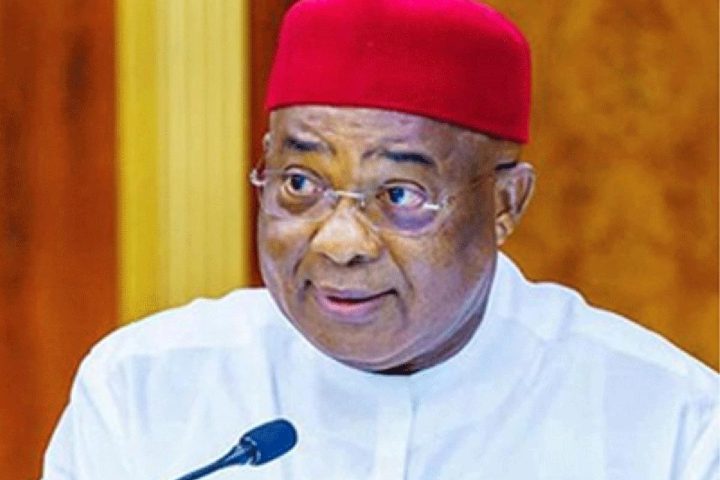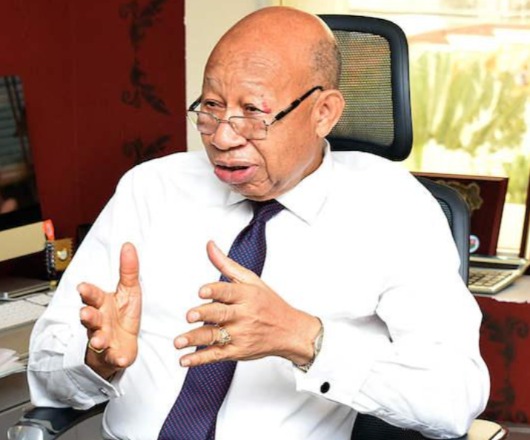A Professor of Philosophy at the Nnamdi Azikiwe University, Awka, has said that the Student Loan Bill signed into law recently by President Bola Tinubu is a welcome development. He said this in an exclusive interview with Prime Business Africa on Wednesday.
Dukor said the policy is to address the pains that followed from the removal of subsidy on fuel. ”The measure will cushion the effect of removal of subsidy on fuel on indigent students and their families,” he said.
Join our WhatsApp ChannelReacting to some media reports that the federal government is planning to increase tuition as part of the implementation process of the policy, he said even though he does not call for an increase he is convinced that Nigerians have no choice since different universities, including private ones whose fees are humongous, have been paying different kinds of tuition that suit them for a long time.
”Nigerians have no choice because the country is a liberalised, ultra-capitalist society patterned after the American system. Already, different universities pay different fees. Also, private universities pay humongous tuition. So, an increase in tuition is not strange to Nigerians. What is happening is that Nigeria’s liberal political economy brings it under pressure from international lending agencies which continually push for the country to do things in accordance with international best practices as they have outlined.
”And since the capitalist class in Nigeria has to be obedient to these international lending institutions who want it to carry out economic reforms, nothing comes for free, not even education. Already these reforms have started in the form of the removal of subsidy on fuel. The education sector is required to be part of the reforms; tuition payment alongside the provision of student loans is one of the reforms in the education sector,” Dukor said.
Speaking on the jail term provided for in the Act in anticipation of those who will fail to pay back the loan, Dukor called for the restoration of economic stability and security of lives and properties. He said there will be no default in repayment of the loan in a stable and secure country.
He said, ”If there is no job, no security, people will want to leave for other climes. And so a person who got the loan but has no job on graduation and lives under continuous security threat has no choice but to seek a better life outside the shores of the country.
”These schemes work in places like America and other developed places because there is economic stability, security and total well-being. In these circumstances, student loans are not harmful because the environment remains conducive for a beneficiary to stay back and work and pay his/her loan.”
Dukor, however, urged Nigerians to become more patriotic and committed to the progress and survival of the country.
The President, Ahmed Bola Tinubu, as part of his Democracy Day tidings, signed the Students Loan Act (Access to Higher Education) into law on June 12, 2023. This was apparently in fulfilment of one of the most important contents of his campaign promises as he wooed voters for the presidency. He had said that Nigerian students would have easy access to loans to fund their education.
President Bola Tinubu’s Student Loan Act is not the first in Nigeria’s governance space. There had been Gen Yakubu Gowon’s Federal Students Loan Decree in the 1970s. The scheme provided for a 20-year repayment plan, taking care of tuition, dues, etc. In a few years, however, the pangs of the fund had already set in as the government started advocating for cost-reflective tuition in apparent exasperation over the burden. It was this circumstance that birthed the Ali- Must-Go crisis in 1978 following the increase in tuition fees.
The new Students Loan Act of the Bola Tinubu administration is going to be run under the bureaucracy of the Nigeria Education Loan Fund. To bring money into the Fund, the Act requires some revenue-generating agencies such as the Nigeria Customs Service, Nigeria Immigration Service and Federal Inland Revenue Service to pay one per cent into it. One per cent profit of oil and mineral is also to be paid into the fund which will be managed by the Central Bank of Nigeria.
The Act further provides that a student can only have access to the fund if his/her family is not on an annual revenue in excess of N500,000. He/she also must provide two guarantors in the status of a civil servant who must have been in service for 12 years or more and a lawyer of 10 years in employment.
Whereas the Federal Students Loan scheme of the 1970s provided for a 20-year repayment plan, the Bola Tinubu Students Loan Act provides for a 20-month repayment plan. The Act further provides for two-year post-service repayment which is tied to the student’s employment on the PAYE process. This means that repayment is tied monthly to the salary to ensure there is no escape or compromise.


















Follow Us